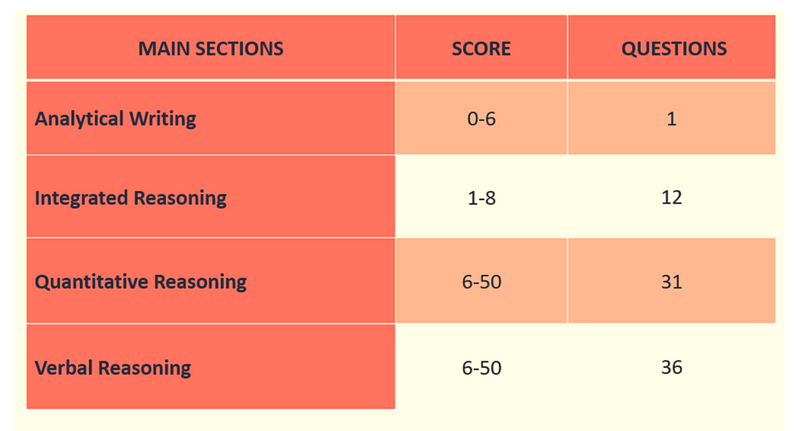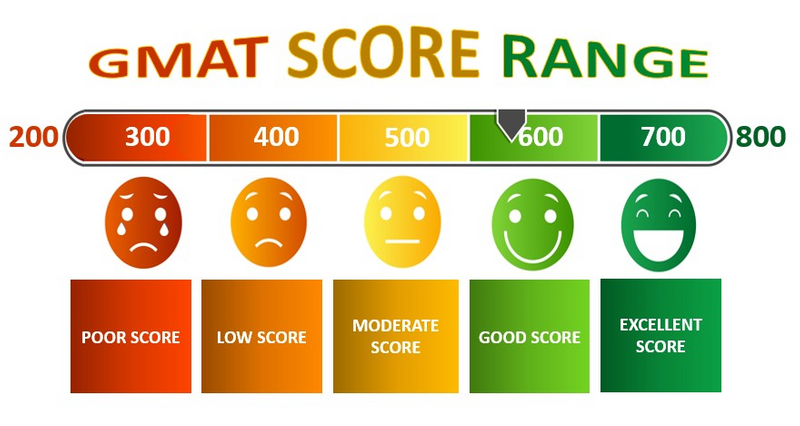Are you an aspiring graduate school Business major?
Are you trying to work out how GMAT scores are calculated?

Getting a good GMAT score for your target business school is one indicator of your ability to meet the academic challenges of an MBA program.
The score includes more than just calculating the number of correct answers to questions on the test.
How the GMAT System Works
The Graduate Management Admission Test (GMAT) is a computer-based test used globally by business schools as a standard for admission to MBA programs.
The GMAT measures your skills and abilities in critical thinking, logical reasoning, writing evaluation, and quantitative problem-solving skills, in four scored test sections.

Its scoring system is a computer-adaptive test. It monitors how you perform answering questions on the GMAT and evaluates your ability by the accuracy of your response to the different types of questions.
How the GMAT Scores are Used
The GMAT exam has four scored test sections, and the information that will be used to calculate your scores include
your score from verbal reasoning
your score from quantitative reasoning
your performance & other exam factors
Only scaled test scores from the verbal and quantitative reasoning sections are used.
 👉 Learn more about the GMAT section scores mentioned in the above table here
👉 Learn more about the GMAT section scores mentioned in the above table here
The analytical writing and integrated reasoning sections are scored independently. The scores aren't calculated in your GMAT total score but are added separately in the Official Score Report.
How Your GMAT Score is Calculated

Your GMAT total score is a combination of the assessment of your performance on the quantitative reasoning and verbal reasoning sections of the test. You can expect to receive a score between 200 and 800.
Scaled scoresfrom the verbal and quantitative sections are converted to a number in the GMAT score range.
Your GMAT score includes more than the number of correctly answered questions in each section of the test.
Note that...
A good performance on the test can generate high scores (>600) for:

more questions correctly answered
more difficult questions correctly answer
accuracy of answers to difficult questions
A poor to moderate performance on the test can drastically reduce your score (<600) and add penalties for: 
questions you give a wrong answer to
questions you leave unanswered
sections you skip or leave incomplete
not finishing the exam in the allotted time
⚡Knowledge Quiz

Nadia is taking the GMAT exam for the second time. She took her first GMAT exam when she was ill and didn't perform well. She earned a high score on quantitative reasoning but received a low score on verbal reasoning. Nadia received a total score of 585.
Nadia knows she can achieve a score of 680 for her target business school. In her previous proctored practice tests, she gained high GMAT scores of 675 and 690 respectively.
Quiz
What should Nadia do on the GMAT exam to improve her verbal reasoning score?
Take Action
Check your target business school's GMAT score and calculate what you need to achieve on each section of the test to obtain your total score.

Your feedback matters to us.
This Byte helped me better understand the topic.
